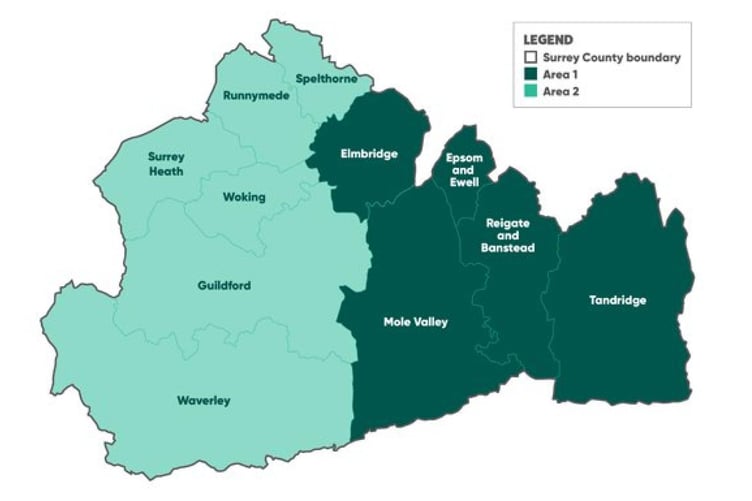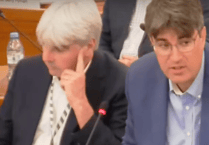A proposal for three unitary authorities in Surrey is the local government reorganisation solution favoured by Waverley and Guildford borough councils.
They have submitted a joint response to the government consultation supporting the three unitaries plan and were among nine of Surrey’s 11 councils co-authoring it.
Both believe it offers “the most coherent, evidence-based and future-ready solution for delivering high-quality services, empowering communities, and supporting sustainable economic growth” but stressed they would collaborate with all partners to ensure success for whatever model was chosen.
They feel the three-unitary proposal is rooted in Surrey's “real economic geography and community identity”, reflecting “long-established travel-to-work areas, housing markets, and local partnerships” to create councils built around places “people recognise and relate to”.
In an April survey of 3,265 Surrey residents, 63 per cent supported three unitaries, with 17 per cent favouring two unitaries and 20 per cent expressing no preference.
Waverley and Guildford said aligning three councils with “functional economic areas” enabled “far better strategic planning and more-targeted investment”.
They claimed this supported “better place-based service delivery”, with councils close enough to understand and respond to local needs.
Guildford leader Cllr Julia McShane said: "This is a once-in-a-generation opportunity to reshape local government in a way that truly reflects the communities we serve. The three-unitary model is rooted in evidence, shaped by local voices, and designed to deliver better outcomes for residents.
"We are urging the government to recognise the overwhelming support and robust evidence behind the three-unitary proposal. With a clear mandate from residents and a strong foundation for long-term success, the model offers a smarter, more sustainable future for local government in Surrey."
The two councils say the three-unitary proposal shows £60 million of savings by its fourth year of operation while maintaining “a strong focus on service quality and sustainability”.
Criticising the two-unitary plan, Waverley and Guildford said it assumed children's services and adult social care would need to be fully broken up, which they felt “risks introducing considerable risk for vulnerable people”.
They claimed three unitaries “lays a more solid foundation for effective devolution” alongside a future mayoral strategic authority.
Waverley leader Cllr Paul Follows said: "The two-unitary proposal is a top-down solution that ignores the diversity of our communities and the economic logic of our region.
“The three-unitary model is backed by the majority of councils in Surrey, by residents, and by the evidence. Most importantly for the future of high-quality public services in the county, it's the only option that delivers real reform, not just reorganisation.
"As we have made clear throughout this process, getting the structure of the new councils right is essential to delivering the best outcomes for the people and businesses of Surrey.
“But whatever decision the government ultimately makes, what won't change is that both our councils remain committed to working collaboratively with all stakeholders and partners to ensure a smooth transition and to continue delivering excellent, responsive services that meet the needs of our communities - both now and into the future."

.jpeg?width=209&height=140&crop=209:145,smart&quality=75)



Comments
This article has no comments yet. Be the first to leave a comment.